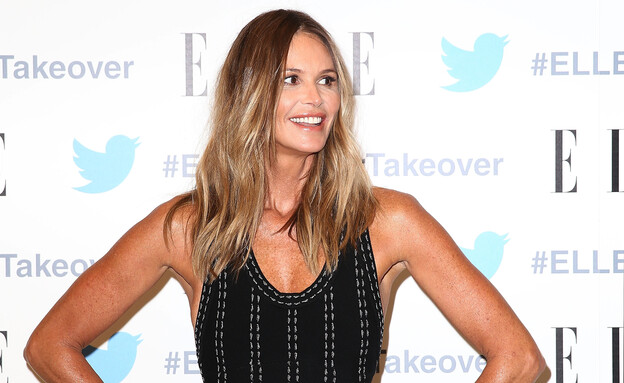In recent decades, McPherson has adopted a holistic approach to health and quality of life, and has been in a relationship with Andrew Jeremy Wakefield, a vaccine opponent whose license was revoked after a false article he published about the alleged link between the measles, mumps, and rubella vaccine and the onset of autism and intestinal diseases.
In the same interview, she also talks about her choice, which is controversial, not to use the traditional treatments. According to her, after seeking advice from 32 doctors and experts, and some of them recommended that she undergo a mastectomy, chemotherapy, hormone therapy and breast reconstruction surgery, she decided to fight cancer through alternative medicine. “Saying no to standard medical solutions was the hardest thing I’ve ever done in my life. But saying no to my inner sense was even harder,” she wrote in her book. “Sometimes, making an authentic choice from the heart doesn’t make sense to others. People thought I was crazy. It took courage.”
McPherson added that during the illness she was treated by a number of specialists including: a naturopath, a holistic dentist, an osteopath and a chiropractor. Also, she moved to a house in Arizona, where she stayed alone for eight months under the care of her doctor, and according to her, devoted every minute to self-healing.
McPherson describes her medical condition today and says that “in traditional terms, the doctors would say that I am in clinical remission, but I would call it ‘complete health’, and I am indeed in such a state in every aspect: both in terms of the results of the tests I undergo and emotionally, spiritually and mentally “.
Can holistic therapy really cure cancer?
In recent years, voices have been heard from people advocating a holistic approach who prefer it over conventional medical treatments, sometimes even in life-threatening situations. Did McPherson really come up with something that could save the need for the familiar medical treatment? According to Prof. Shani Faluch-Shimon, director of the Oncology Unit at the Hadassah Medical Center, not necessarily.
According to her, despite McPherson’s revealing interview, the details she provided about her current medical condition should be treated with limited liability. “Many times we hear about people who healed themselves ‘naturally’, but when we look for the truth, it turns out that the same patient did not have an aggressive cancer that required such treatment, and sometimes she was not diagnosed with a cancer at all. Moreover, no patient needs to consult With 32 doctors and specialists, and we don’t really know which ‘specialists’ she means. You have to remember that in the US, a naturopath and a chiropractor can also earn a doctorate.”
The professor also refers to the recommendations McPherson received from her doctors, among other things for mastectomy surgery. “Not in all cases such an operation is indeed necessary, and it is not clear why McPherson thought she had to do it. It is possible that she was given two options: breast conservation or excision – and if a specialist breast surgeon performed a macectomy (breast conservation) – it is assumed that he thought it was indeed appropriate From a medical point of view, these are discussions that take place every day with patients, and this is also a fact that needs to be taken into account – it is our duty to present to the patients all the options available to them and to recommend to them what is best for them from a medical point of view.
Referring to the nature of the cancerous tumor that McPherson mentioned – “stage 0” cancer, intraductal carcinoma positive for HER2, she explains that it is not an invasive cancer at all, but a pre-cancerous tumor. “In such a case, the recommendation from the outset is not to give chemotherapy or biological treatment, so it is no wonder that the creation. A pre-cancerous tumor is not a life-threatening tumor, and most of those diagnosed will not experience recurrence of this tumor after surgery. The treatment of a pre-cancerous tumor is done through conservative surgery Breast and radiation or excision without radiation, and sometimes it will also be recommended to take pills to reduce the risk for five years.”
The professor explains that today’s medicine focuses on adapting the treatment personally to each patient. “It very much depends on the nature of the tumor. There are cases in which there is a distinct advantage to the addition of chemotherapy and biological treatment, for example in situations of an invasive tumor that includes aggressive characteristics, above a certain size or when there is involvement of glands. In such cases, these are life-saving treatments. In other cases, the advantage of Chemotherapy is borderline, so the treating doctor will talk to the patient about the meaning and they will decide together on the continuation of the treatment. Of course, there are also cases where there is no advantage in chemotherapy treatment. In the end, those who need life-saving drug treatment and choose not to do it are literally gambling with their lives.
According to her, a healthy lifestyle, a balanced body weight, and sports activity are important tools that reduce the chance of getting sick in the first place and the recurrence of the disease, and this approach should be taken at the same time as the treatment recommended by the doctor, including the drug treatment, and not at its expense. “What can be learned from McPherson’s story is that early detection saves lives, and I encourage all women aged 50 and over, or before the age of 50 for those who have risk factors – to go get checked and be careful with mammograms.”
